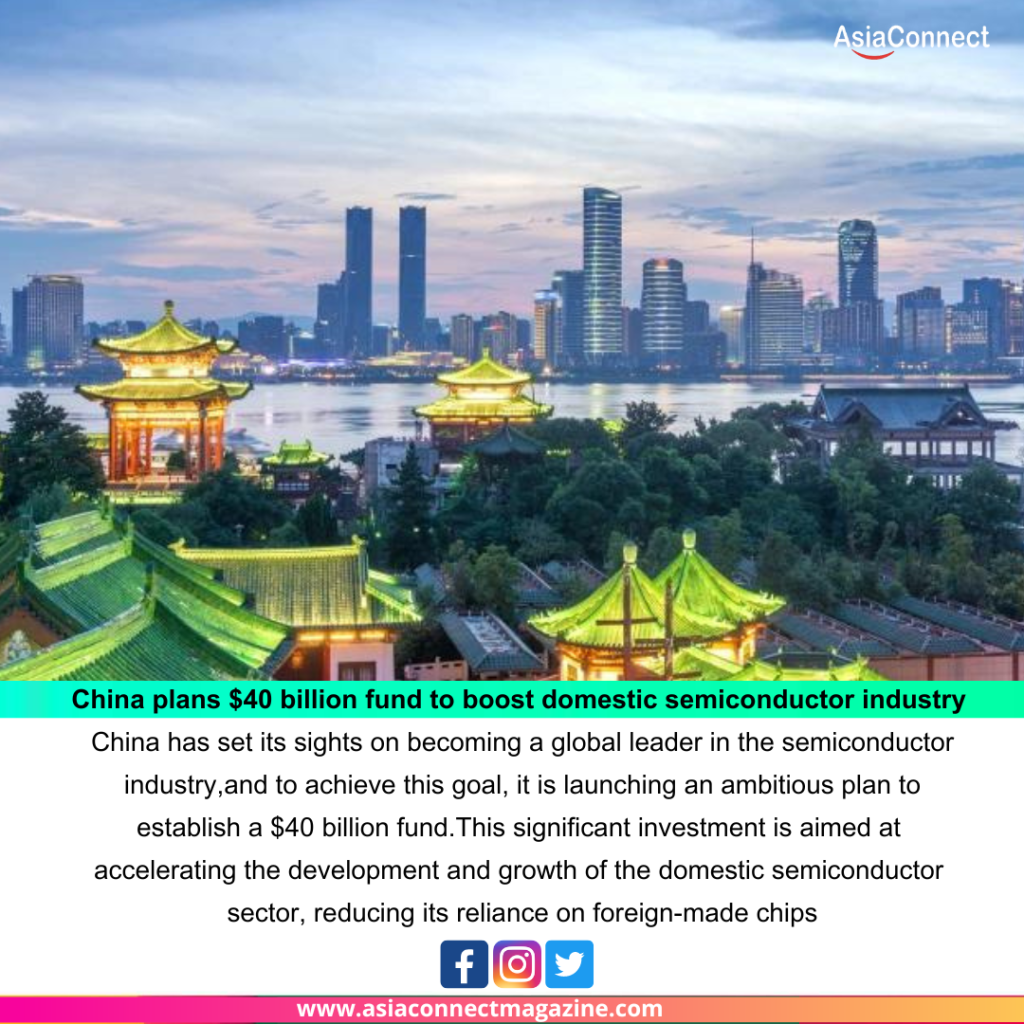
China’s Ambitious Plan: A $40 Billion Fund to Boost the Domestic Semiconductor Industry
China has set its sights on becoming a global leader in the semiconductor industry, and to achieve this goal, it is launching an ambitious plan to establish a $40 billion fund. This significant investment is aimed at accelerating the development and growth of the domestic semiconductor sector, reducing its reliance on foreign-made chips, and enhancing its technological prowess in this critical field.
The Semiconductor Industry’s Strategic Importance
Semiconductors are the backbone of modern technology, powering everything from smartphones and computers to advanced weaponry and space exploration. In recent years, the semiconductor industry has taken on heightened importance due to its role in emerging technologies like 5G, artificial intelligence (AI), and the Internet of Things (IoT). China recognizes that having a strong semiconductor industry is not only essential for economic growth but also for national security and technological sovereignty.
Reducing Reliance on Foreign Chips
China’s semiconductor industry has made significant progress in recent years, but it still lags behind global leaders like the United States, South Korea, and Taiwan. One of the primary challenges it faces is its heavy dependence on imported chips, which account for a substantial portion of the country’s tech imports.
By establishing a $40 billion fund, China aims to reduce this reliance on foreign semiconductor manufacturers. The fund will be used to support domestic semiconductor companies, invest in research and development (R&D) initiatives, and promote the production of advanced chip manufacturing equipment. This comprehensive approach seeks to bolster the entire semiconductor ecosystem within China.
A Coordinated Effort
China’s plan to boost its semiconductor industry is not a solo endeavor. It involves close collaboration between the government, industry players, and academia. The government has pledged to create a favorable regulatory environment, provide financial incentives, and offer support for intellectual property protection. Industry stakeholders are expected to contribute their expertise and resources, while academia will play a crucial role in nurturing talent and conducting cutting-edge research.
Challenges and Global Implications
While China’s ambition to strengthen its semiconductor industry is commendable, it faces several challenges. The global semiconductor market is highly competitive and dominated by established players with significant technological advantages. Achieving self-sufficiency in semiconductor manufacturing is a complex and capital-intensive process that involves advanced research, development, and production capabilities.
Additionally, the plan has sparked concerns among some countries about intellectual property theft and forced technology transfers. These concerns have led to trade tensions and restrictions on the export of semiconductor-related technologies to China.
The success of China’s plan could have significant global implications. It may lead to increased competition in the semiconductor market, potentially benefiting consumers and driving innovation. However, it also raises questions about supply chain security and the need for diversification to reduce dependence on any single country or region for critical components.
The Road Ahead
China’s $40 billion fund to boost its domestic semiconductor industry underscores the country’s determination to become a global semiconductor powerhouse. While it faces challenges and concerns from international partners, the plan reflects the broader trend of nations recognizing the strategic importance of the semiconductor industry.
The success of this endeavor will depend on China’s ability to foster innovation, attract and retain top talent, and navigate international trade dynamics. As the semiconductor industry continues to evolve, its strategic importance in the global technology landscape cannot be overstated. China’s efforts to strengthen its position in this field will undoubtedly shape the industry’s future and influence the competitive landscape for years to come.




